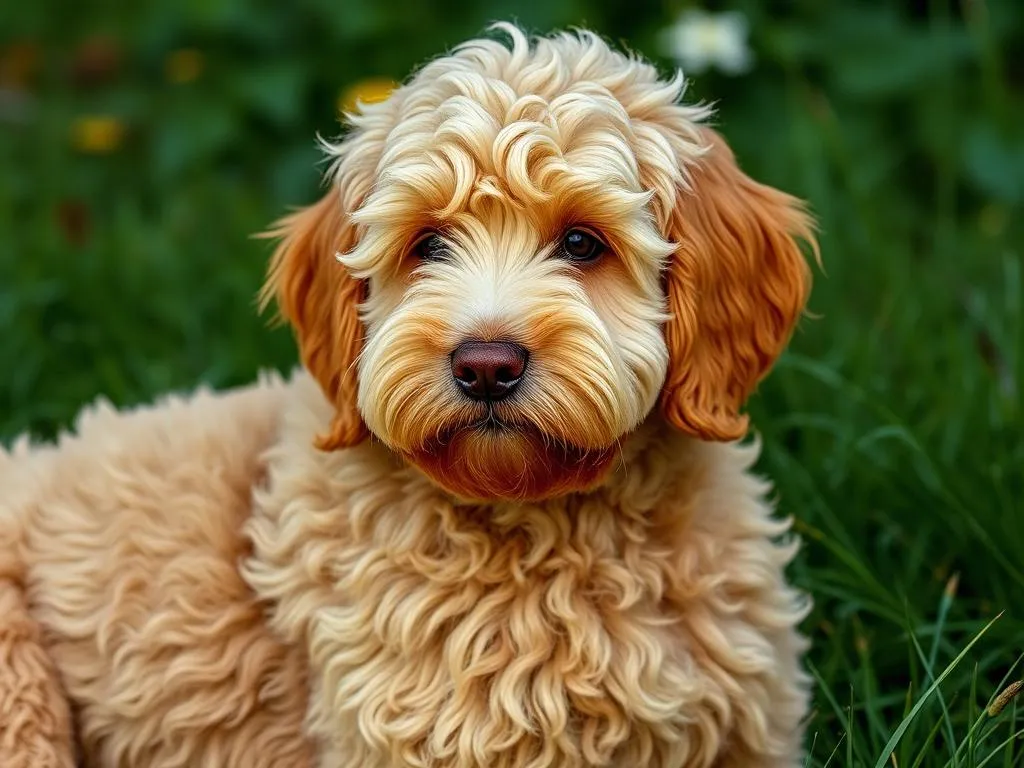
Goldendoodles are a delightful crossbreed, combining the friendly nature of the Golden Retriever with the intelligence of the Poodle. This hybrid dog has gained immense popularity for its affectionate demeanor and low-shedding coat, making them a favorite among families and individuals alike. Understanding the traits and care required for Goldendoodles is essential for prospective owners to ensure a harmonious relationship. This article will delve into a variety of goldendoodle facts, providing insights into their characteristics, care needs, and overall compatibility with various lifestyles.
Understanding Goldendoodles
Goldendoodles are a designer dog breed that originated in the 1990s, primarily in North America. Their creation aimed to combine the best traits of the Golden Retriever and the Poodle, resulting in a dog that is not only friendly and intelligent but also hypoallergenic for those with allergies.
Parent Breeds: Golden Retriever and Poodle
The Golden Retriever is renowned for its friendly disposition and loyalty, making it an excellent family dog. The Poodle, on the other hand, is celebrated for its intelligence and versatility. By blending these two breeds, Goldendoodles inherit a mix of their parents’ best qualities.
Different Sizes of Goldendoodles
Goldendoodles come in three distinct sizes, determined by the size of their Poodle parent:
- Standard Goldendoodle: Typically weighs between 50-90 pounds and stands 20-24 inches tall. This size is best suited for families with ample space.
- Miniature Goldendoodle: Weighs around 30-50 pounds and stands about 16-20 inches tall, making them a popular choice for those living in smaller homes.
- Toy Goldendoodle: The smallest variety, weighing 10-30 pounds and standing 10-15 inches tall. Toy Goldendoodles are ideal for apartment living.
Physical Characteristics
Goldendoodles are known for their distinct appearance, which can vary based on their coat type and color.
Coat Types and Colors
Goldendoodles can have three main types of coats:
- Curly: Similar to a Poodle’s coat, these are dense and non-shedding, requiring regular grooming.
- Wavy: These coats are a mix between curly and straight, providing a soft and fluffy appearance.
- Straight: This coat is more reminiscent of a Golden Retriever’s, which may shed more but is easier to maintain.
Common color variations include cream, apricot, gold, red, and black. The diversity in coat colors and textures allows for a variety of beautiful looks.
Average Size and Weight by Type
As mentioned earlier, Goldendoodles come in three sizes, with the average weight and height varying accordingly. A Standard Goldendoodle can weigh anywhere from 50 to 90 pounds, while the Miniature version averages 30 to 50 pounds, and the Toy variety hovers between 10 to 30 pounds.
Lifespan and General Health Considerations
Goldendoodles typically enjoy a lifespan of 10 to 15 years. However, they can be prone to certain health issues inherited from their parent breeds. Regular veterinary check-ups and a healthy lifestyle can help mitigate these risks.
Temperament and Behavior
Goldendoodles are known for their friendly and affectionate nature, making them wonderful companions.
General Personality Traits of Goldendoodles
These dogs are often described as affectionate, intelligent, and friendly. They tend to form strong bonds with their families and are known for their playful and loyal demeanor.
Socialization Needs
Socialization is crucial for Goldendoodles, as it helps them develop into well-rounded adults. Early exposure to various people, pets, and environments can prevent behavioral issues down the line.
Compatibility with Children and Other Pets
Goldendoodles are generally excellent with children and can coexist peacefully with other pets. Their playful nature makes them a great match for families, and they often enjoy engaging in games and activities with kids.
Common Behavioral Traits
Goldendoodles are known for their playful spirit and loyalty. They thrive on companionship and often seek out human interaction, making them less suited for long periods of solitude.
Training and Exercise Requirements
Training and exercise are vital for Goldendoodles to ensure they remain well-behaved and healthy.
Importance of Early Training and Socialization
Starting training and socialization early is crucial for Goldendoodles. This breeds intelligence means they are quick learners, but they can also develop stubbornness if not properly guided.
Recommended Training Techniques
Positive reinforcement techniques, such as treats and praise, are highly effective when training Goldendoodles. These methods promote a trusting relationship and encourage good behavior.
Daily Exercise Needs and Suitable Activities
Goldendoodles require regular exercise to maintain their health and happiness. Daily walks, fetch games, and agility training are excellent ways to keep them physically active.
Mental Stimulation
In addition to physical exercise, Goldendoodles benefit from mental stimulation. Puzzle toys, interactive games, and training sessions can keep their minds sharp and engaged.
Grooming and Care
Proper grooming and care are essential to keep Goldendoodles looking their best and feeling comfortable.
Grooming Needs Based on Coat Type
The grooming frequency for Goldendoodles largely depends on their coat type. Curly coats require more frequent brushing (at least 3-4 times a week) to prevent matting, while straight coats may need less frequent grooming.
Recommended Grooming Frequency
Generally, Goldendoodles should be groomed every 4-6 weeks to maintain their coat’s health and cleanliness. Regular bathing, brushing, and trimming are crucial to prevent matting and tangles.
Tips for Maintaining Coat Health
To maintain a healthy coat, use a high-quality dog shampoo and conditioner. Regular brushing and grooming will not only keep their coat looking good but also allow you to check for any skin issues.
Regular Health Checks
Routine health checks, including ear cleaning, teeth brushing, and nail clipping, should be part of your Goldendoodle’s grooming routine. This helps prevent common health issues and keeps them comfortable.
Health Considerations
Like all breeds, Goldendoodles can be prone to certain health issues that potential owners should be aware of.
Common Health Issues in Goldendoodles
Goldendoodles may inherit health problems from their parent breeds, including:
- Hip Dysplasia: A common condition in larger breeds where the hip joint doesn’t fit snugly into the hip socket.
- Allergies: Goldendoodles can be sensitive to certain environmental factors or food ingredients.
- Ear Infections: Their floppy ears can trap moisture, leading to infections if not cleaned regularly.
Importance of Regular Veterinary Check-Ups
Regular veterinary visits are essential for monitoring your Goldendoodle’s health and catching potential issues early. Vaccinations, heartworm checks, and dental cleanings are vital components of their healthcare routine.
Nutrition and Diet Recommendations
Feeding your Goldendoodle a balanced diet tailored to their age, size, and activity level is crucial. Consult with your veterinarian for specific recommendations on high-quality dog food that meets their nutritional needs.
Finding a Goldendoodle
If you’re considering bringing a Goldendoodle into your home, there are several avenues to explore.
Where to Adopt or Buy a Goldendoodle
Goldendoodles can be found through reputable breeders or animal shelters. Researching and choosing a responsible source is crucial to ensure the health and well-being of your future pet.
Reputable Breeders vs. Shelters/Rescues
When looking for a Goldendoodle, always choose a breeder who conducts health screenings for genetic conditions and prioritizes the welfare of their dogs. Alternatively, consider adopting from a rescue, as many Goldendoodles are in need of loving homes.
Questions to Ask Breeders or Shelters
Before committing to adopting or purchasing a Goldendoodle, ask questions about the dog’s health history, socialization efforts, and any potential behavioral issues. This information will help you make an informed decision.
Understanding Adoption Fees and Potential Costs
Goldendoodle prices can vary widely depending on the breeder and location. Additionally, consider ongoing costs such as grooming, food, vet bills, and training when budgeting for a Goldendoodle.
Goldendoodle Lifestyle Compatibility
Understanding how a Goldendoodle fits into your lifestyle is crucial for a successful pet-owner relationship.
Ideal Living Situations
Goldendoodles can adapt to various living situations, but they thrive in homes with ample space to roam. While they can live in apartments, daily exercise is essential to keep them healthy and happy.
Family Dynamics
Goldendoodles are known for their friendly demeanor, making them a great fit for families with children. They are social dogs that enjoy being part of family activities, making them a joyful addition to any household.
Travel Considerations
If you enjoy traveling, Goldendoodles can often adapt to new environments, but it’s essential to consider their needs. Ensure you have a pet-friendly accommodation and plan for their exercise and grooming while away.
Time Commitment and Lifestyle Adjustments
Owning a Goldendoodle requires a significant time commitment. They need regular exercise, grooming, and companionship. Be prepared to adjust your schedule to accommodate their needs.
Conclusion
In summary, Goldendoodles are wonderful companions characterized by their friendly and intelligent nature. Understanding these goldendoodle facts—from grooming and health considerations to training and lifestyle compatibility—will help you make informed decisions about welcoming one into your home. If you’re considering adopting a Goldendoodle, take the time to research and understand their needs to ensure a happy, fulfilling relationship with your new furry friend. The joy and love that a Goldendoodle brings into your life can be immeasurable, making the commitment truly worthwhile.









